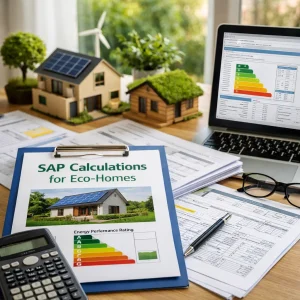The UK Government said it is committed to work to support and build hydrogen infrastructure that could potentially include a role for the gas in domestic heating.
Deliver on legally binding targets to become a net zero carbon economy
MP Greg Hands, the Minister of State for Business, Energy and Clean Growth, said national targets for producing low carbon hydrogen was a vital part of the country’s plans to deliver on its legally binding targets to become a net zero carbon economy by 2050.
He said, “As well as supporting UK energy dependence, it will be a critical tool to help vital British industries transition away from expensive oil and gas and can provide greener energy for industry, transport and potentially, home heating as well.”
The comments were made during the Hydrogen for Life 2022 event that was held in London today to bring together stakeholders involved in the production, distribution and use of gas for heat and power.
UK’s hydrogen Strategy that set out broad ambitions and incentives
The event follows the publication last August of the UK’s hydrogen Strategy that set out broad ambitions and incentives intended to allow the country to generate 5GW of low carbon hydrogen by 2030.
These commitments were followed by the publication of the government’s Energy Security Strategy earlier this year that committed to double these targets to 10GW over the same period with at least half of this gas supply coming from renewable sources.
Analysis from the government has predicted that between 20 and 35 per cent of the UK’s energy consumption across all sectors could be hydrogen-based by 2050.
However, a decision on how this gas supply, if at all, could form part of the UK’s heat decarbonisation plans is not expected until 2026. This timeline is expected to allow for a range of trials into how effectively the gas can be distributed using existing infrastructure for heating homes
Domestic heat potential
Jinmi Macaulay, public affairs and policy manager at the National Grid, noted argued during the Hydrogen for Life 2022 event that the gas could have important applications for use across all sectors.
He said during a discussion held by the All Party Parliamentary Group on Hydrogen that realising this potential would require rethinking the existing regulatory framework for gas that has been designed for methane.
Mr Macaulay said, “How do you get hydrogen production or hydrogen projects going when you have a methane regulatory framework. So for me, I’d ask if we can have a hydrogen regulatory framework, something that can get that going right now.”
He was joined on the panel by Dr Angela Needle, director of Strategy at Cadent Gas.
Dr Needle said she hoped to see the introduction in the UK of new business models that would provide expanded storage and distribution capabilities for hydrogen to help meet demand for the gas depending on the wider energy needs of the country.
Jake Tudge, associate director of energy and mobility deal strategy at KPMG in the UK, said he also shared the panel’s calls for more hydrogen support through the introduction of new business models. These would be needed to encourage further investment in hydrogen production and infrastructure, said Mr Tudge.
He also argued the case to move forward with plans to start blending hydrogen at volumes of up to 20 per cent into the existing gas grid along with natural gas.
Reduction in carbon emissions from the current gas grid
Mr Tudge said this would allow for a reduction in carbon emissions from the current gas grid at the point of use. This would also help drive further development and research into the lower carbon production and distribution of hydrogen as research continues to lower cost and environmental impacts.
He said, “Don’t let perfection get in the way, start blending.”
Hydrogen ready boilers
Mr Tudge said that one “quick win” for the industry would be to mandate the sale of ‘hydrogen ready boilers’ that could be run on both natural gas and a hydrogen blend. These same boilers are designed to be easily converted by a qualified installer to run fully on hydrogen should a supply of the gas be available.
A net zero progress report by the independent Climate Change Committee that was published yesterday (29 June) noted that the government had so far failed to ensure that all new gas boilers being supplied from 2025 would be ‘hydrogen ready’.
Hydrogen ready boilers to help decarbonise homes.
It said this failure to mandate sales of the boilers was despite official recognition in the government’s Heat and Buildings Strategy about the possible value of hydrogen ready boilers to help decarbonise homes.




